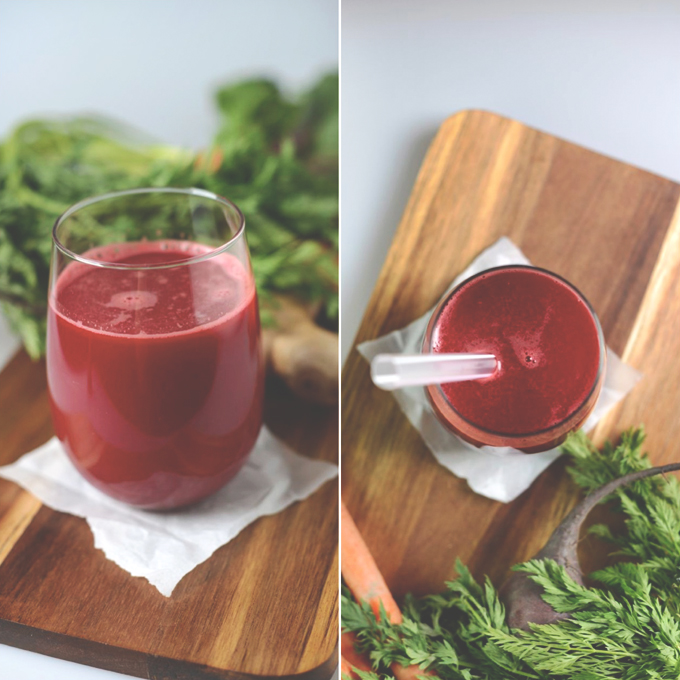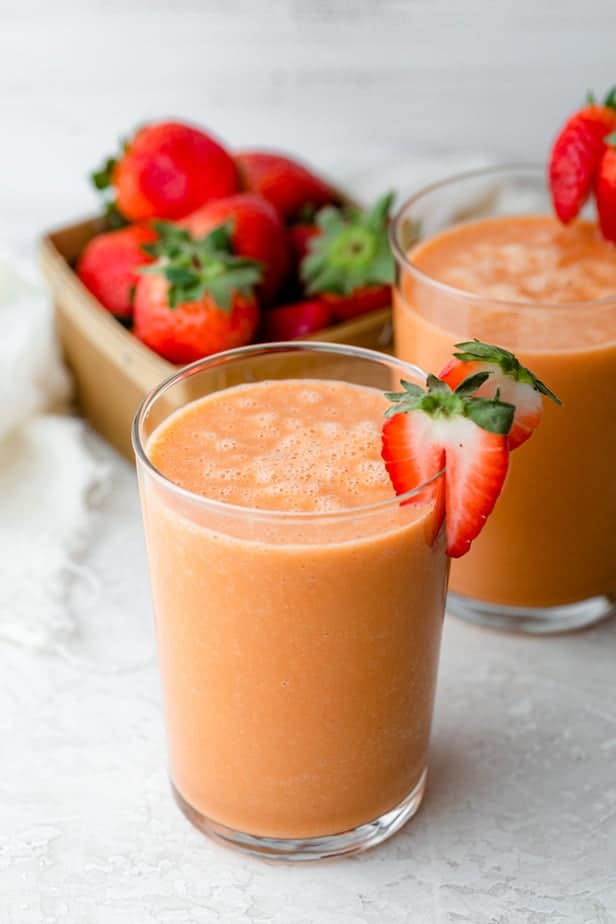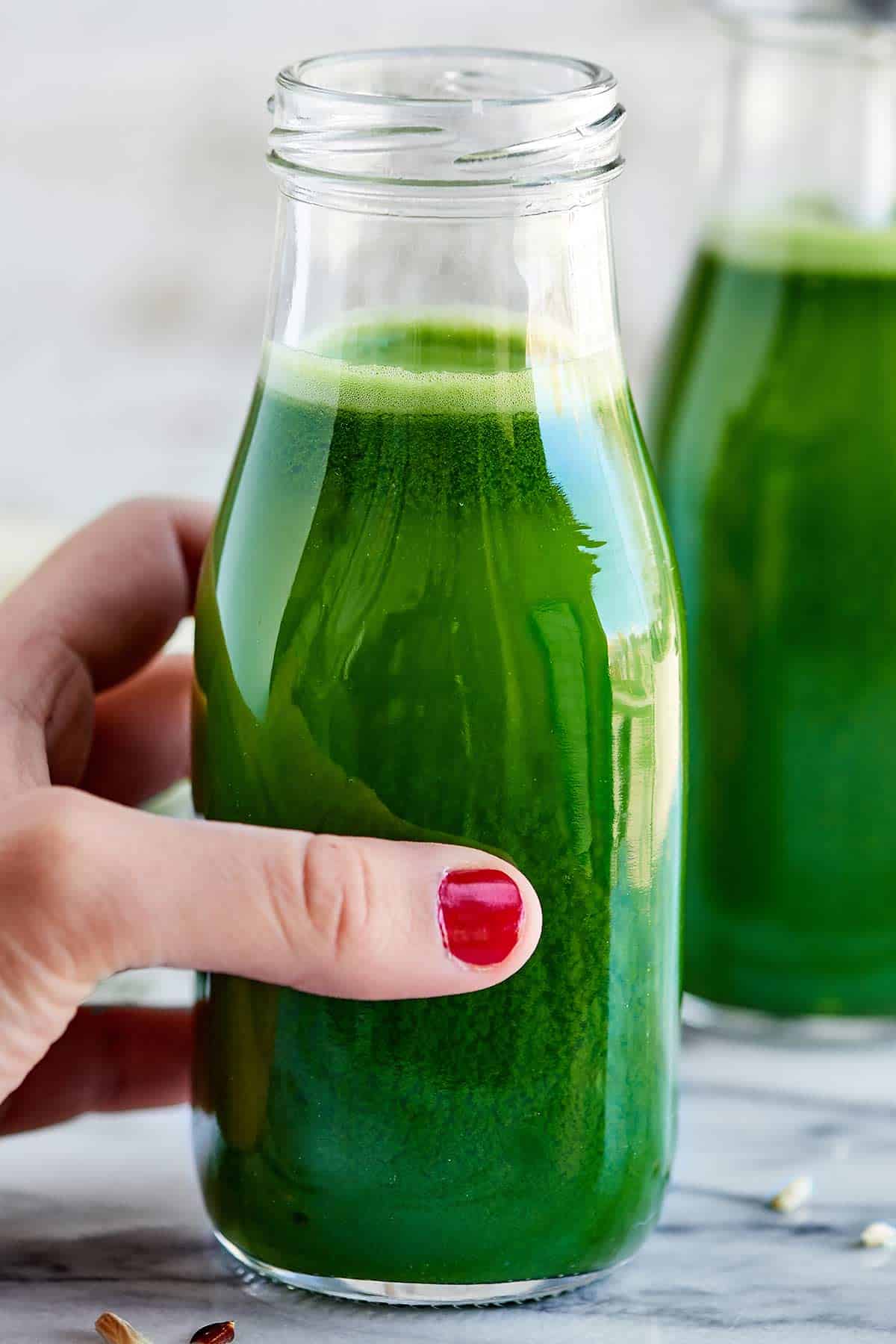Orange, Grapefruit, and other citrus fruits

This citrus medley by Happy Foods Tube delivers around 60% of your recommended daily intake of vitamin C per cup.
Vitamin C functions as an antioxidant, protecting your cells from substances that cause bodily damage.
A deficiency in vitamin C may result in delayed wound healing, a weakened immune response, and an inability to properly fight infections.
Currently, there is no conclusive evidence that taking vitamin C orally prevents coronavirus transmission or treats COVID-19. Neither oral nor intravenous vitamin C therapy is currently recommended for treating COVID-19.
However, if you’ve caught a cold, high doses of vitamin C may help reduce the severity of symptoms and support quicker recovery. For adults, the tolerable upper limit is 2,000 milligrams per day.
Key nutrients (per serving):
-
Potassium (from oranges)
-
Vitamin A (from oranges and grapefruit)
-
Vitamin B6 (from oranges)
-
Vitamin B9 – folate (from oranges)
-
Vitamin C (from all citrus fruits)
Green apple, carrot, and orange

Carrots, apples, and oranges form a powerful combination for supporting your immune system and protecting against infections.
The apples and oranges are excellent sources of vitamin C.
Carrots are rich in beta-carotene, which the body converts into vitamin A — a vital nutrient for immune health.
They also contain vitamin B6, essential for the development of immune cells and antibody production.
This recipe from The Urban Umbrella is a great way to start the morning with a refreshing, tangy kick from green apples balancing the sweetness of the carrots and oranges.
Key nutrients (per serving):
-
Potassium (from carrots)
-
Vitamin A (from carrots)
-
Vitamin B6 (from carrots)
-
Vitamin B9 – folate (from oranges)
-
Vitamin C (from oranges and apple)
Beetroot, carrot, ginger, and apple

This revitalising juice by Minimalist Baker brings together three root vegetables known for supporting immune function and fighting inflammation.
Inflammation is a common immune reaction to viral or bacterial infections, often seen in symptoms like congestion, coughing, and body aches.
This juice may be particularly beneficial for individuals with rheumatoid arthritis, as ginger is known for its anti-inflammatory properties.
Key nutrients (per serving):
-
Potassium (from carrots, beetroot, and apple)
-
Vitamin A (from carrots and beetroot)
-
Vitamin B6 (from carrots)
-
Vitamin B9 – folate (from beetroot)
-
Vitamin C (from apple)
Tomato
:max_bytes(150000):strip_icc():format(webp)/__opt__aboutcom__coeus__resources__content_migration__simply_recipes__uploads__2008__08__homemade-tomato-juice-horiz-a-1200-c37b5128f0f248999446fc460f8afb96.jpg)
The most reliable way to ensure your tomato juice is fresh and free of additives is to make it at home. Simply Recipes offers a straightforward version with minimal ingredients.
The best part? No blender or juicer needed — just strain through a sieve for a smooth result.
Tomatoes are rich in vitamin B9 (folate), which supports immune function. They also contain magnesium, an anti-inflammatory mineral.
Key nutrients (per serving):
-
Magnesium (from tomatoes)
-
Potassium (from tomatoes)
-
Vitamin A (from tomatoes)
-
Vitamin B6 (from tomatoes)
-
Vitamin B9 – folate (from tomatoes)
-
Vitamin C (from tomatoes)
-
Vitamin K (from tomatoes and celery)
Kale, tomato, and celery

Kale is a regular in many green juice recipes, but Tesco’s “Kale Mary” — a spin on the Bloody Mary — is especially unique.
Rather than masking the kale flavour with fruit, this version uses tomato juice, delivering a high dose of vitamin A.
According to 2021 research, adding a touch of horseradish may provide additional anti-inflammatory benefits. A bold blend to awaken your senses.
Key nutrients (per serving):
-
Magnesium (from tomato juice)
-
Manganese (from kale)
-
Potassium (from tomato juice)
-
Vitamin A (from kale and tomato juice)
-
Vitamin B6 (from tomato juice)
-
Vitamin B9 – folate (from tomato juice)
-
Vitamin C (from kale and tomato juice)
-
Vitamin K (from tomato juice)
Strawberry and kiwi
Strawberries and kiwis are excellent additions to any vitamin C-rich drink. As it takes approximately four cups of strawberries to yield one cup of juice, blending them into a smoothie is a more efficient option.
We love this Well Plated recipe featuring skimmed milk — a great source of protein and vitamin D, which is rarely found in fruit or vegetable-only juices.
Many people are deficient in vitamin D, which your skin produces when exposed to sunlight and is also found in small amounts in animal products. Adequate levels of this vitamin may reduce the risk of respiratory infections such as pneumonia or influenza.
To boost the benefits further, consider swapping milk for probiotic-rich Greek yoghurt. Probiotics increase healthy gut bacteria, helping protect against harmful microbes.
Key nutrients (per serving):
-
Calcium (from skimmed milk)
-
Manganese (from strawberries and oats)
-
Phosphorus (from oats)
-
Potassium (from strawberries, banana, and orange)
-
Vitamin B1 – thiamine (from oats)
-
Vitamin B6 (from banana)
-
Vitamin B9 – folate (from strawberries and orange)
-
Vitamin B12 (from skimmed milk)
-
Vitamin C (from strawberries, kiwi, and orange)
-
Vitamin D (from skimmed milk)
-
Vitamin K (from kiwi)
-
Zinc (from skimmed milk)
Strawberry and mango
Feel Good Foodie’s strawberry and mango smoothie is a delicious and nutritious way to indulge in a brunch treat. This recipe makes use of frozen fruit, which retains the same nutrients as fresh produce.
You can, of course, substitute fresh fruit if preferred.
The mango and almond milk supply a healthy dose of vitamin E — a powerful antioxidant that supports immune function.
Key nutrients (per serving):
-
Calcium (from almond milk)
-
Manganese (from strawberries)
-
Potassium (from strawberries)
-
Vitamin A (from mango and carrot)
-
Vitamin B6 (from mango)
-
Vitamin B9 – folate (from strawberries and mango)
-
Vitamin C (from strawberries, mango, and orange)
-
Vitamin D (from almond milk)
-
Vitamin E (from mango and almond milk)
Watermelon and mint

Watermelon is packed with vitamin C and arginine, both of which support the immune system.
Thanks to its high water content, it juices easily and yields generously with little waste.
Dassana’s Veg Recipes features a refreshing watermelon mint juice. You can also blend watermelon with other juices such as apple or orange, which may have less vitamin A.
Key nutrients (per serving):
-
Arginine (from watermelon)
-
Citrulline (from watermelon)
-
Magnesium (from watermelon)
-
Vitamin A (from watermelon)
-
Vitamin C (from watermelon)
Pumpkin seed
Many pumpkin juice recipes are full of added sugar or rely on shop-bought apple juice.
That’s why we’re spotlighting this pumpkin seed milk recipe by The Blender Girl — fresh, natural, and a fantastic base for fruit smoothies.
Pumpkin seeds are a great source of zinc, a key component in many cold remedies due to its positive effects on inflammation and immune function.
Although current guidelines do not recommend exceeding dietary zinc intake for COVID-19 prevention (outside of clinical trials), maintaining normal levels supports overall immunity.
Key nutrients (per serving):
-
Magnesium (from pumpkin seeds)
-
Manganese (from pumpkin seeds)
-
Potassium (from dates)
-
Zinc (from pumpkin seeds)
Green apple, lettuce, and kale

A green juice based on vegetables is a nutrient powerhouse that can help strengthen the immune system.
Show Me the Yummy has a great recipe to help you enjoy your greens with pleasure.
For extra nutrients, toss in some parsley or spinach to boost your intake of vitamins A, C, and K.
Key nutrients (per serving):
-
Iron (from kale)
-
Manganese (from kale)
-
Potassium (from kale)
-
Vitamin A (from kale and celery)
-
Vitamin B9 – folate (from celery)
-
Vitamin C (from kale and lemon)
-
Vitamin K (from cucumber and celery)


